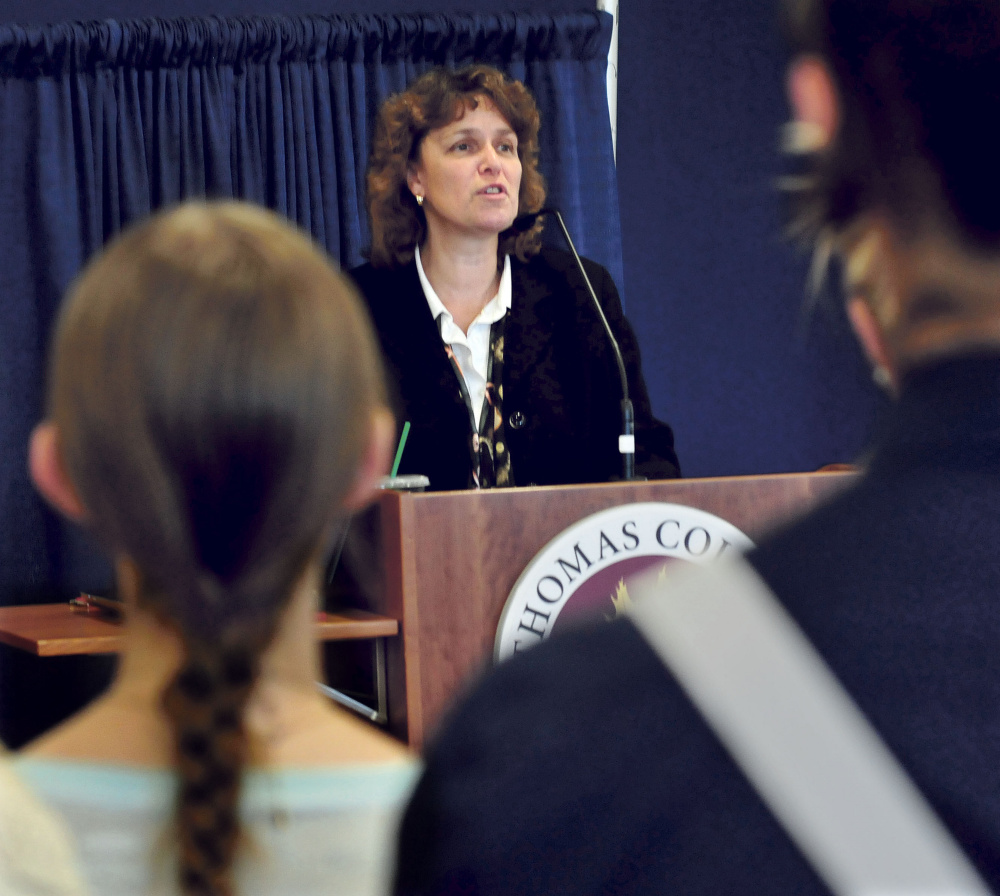WATERVILLE — Thomas College is setting out to be a leader in educating the next generation of teachers with the establishment of its Center for Innovation in Education, which was officially unveiled Tuesday afternoon at a news conference.
With the establishment of the new center – the first of its kind in the state’s higher education system, college officials said Tuesday – the college will refocus its education programs to include teaching proficiency-based learning standards, an emphasis on technology infusion and STEAM (science, technology, engineering, arts and mathematics) methods.
“Our mission is to prepare students for success in their personal and professional lives,” said Thomas College Provost Tom Edwards at the news conference. “The Center for Innovation in Education aligns with this mission.”
Edwards said the college will produce “a new type of teacher” better prepared to adapt to the state’s changing education focus.
The conference, held in the Summit Room of the Spann Student Commons, was attended by faculty and students and featured remarks from Edwards, President Laurie Lachance and Margie Lunder Golby, who spoke on behalf of the Lunder Foundation, which gave the school a grant to fund the program for five years.
The Lunder grant is “significant” and will establish three new faculty positions for the center – one position for each of the focus areas – and make new technology investments that will be infused into their higher education curriculum, officials said Tuesday, though the amount of the grant wasn’t made public.
College officials said they hope the center’s establishment will serve as a nexus for education in central Maine. The center and its resources will be available not only to students across a variety of Thomas’ educational disciplines, but also as a professional development tool for teachers already in classrooms in central Maine.
In 2013, Maine lawmakers passed legislation that sought to begin the conversion from grade-based learning methods to proficiency-based learning in public schools. In a proficiency-based curriculum, new standards supplant traditional grading. Educators and school administrators break down the Maine Learning Results Standards into specific topics and skills. In order for students to progress, they must demonstrate proficiency in the topics.
By 2018, all public high schools in Maine will have to grant diplomas in a proficiency-based system with students not necessarily making it through all four grades of high school, but rather mastering all of the required topics or skills in order to qualify for graduation.
Send questions/comments to the editors.




Success. Please wait for the page to reload. If the page does not reload within 5 seconds, please refresh the page.
Enter your email and password to access comments.
Hi, to comment on stories you must . This profile is in addition to your subscription and website login.
Already have a commenting profile? .
Invalid username/password.
Please check your email to confirm and complete your registration.
Only subscribers are eligible to post comments. Please subscribe or login first for digital access. Here’s why.
Use the form below to reset your password. When you've submitted your account email, we will send an email with a reset code.